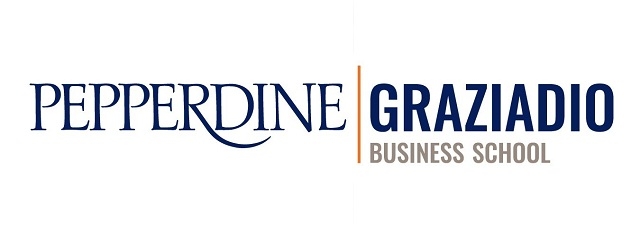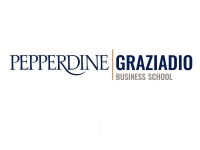Business
ALTERNATIVE LENDING ON THE RISE FOR U.S. SMALL BUSINESSES
FROM Q2 PRIVATE CAPITAL ACCESS INDEX

(Source: Dun & Bradstreet)
USPA NEWS -
Alternative lending options are on the rise for both small (<$5 million in revenue) and mid-sized ($5 - $100 million) businesses, according to results from the Q2 Private Capital Access Index (PCA Index) from Dun & Bradstreet and Pepperdine Graziadio Business School.
Alternative lending options are on the rise for both small (<$5 million in revenue) and mid-sized ($5 - $100 million) businesses, according to results from the Q2 Private Capital Access Index (PCA Index) from Dun & Bradstreet and Pepperdine Graziadio Business School.
Thirty-four percent (34%) of respondents attempted to raise financing in the last quarter, up from 29% reported in Q1. Attempts to secure a loan from a traditional bank has declined since Q1, however, with 41% of businesses reporting that they sought a bank loan as a source of funding compared to 49% the previous quarter. Bank loan success rates are also down for both small and mid-sized businesses, with 32% of small businesses (down from 41% the previous quarter) and 89% of mid-sized businesses (down from 95% the previous quarter) reporting success rates for bank loans.
Thirty-four percent (34%) of respondents attempted to raise financing in the last quarter, up from 29% reported in Q1. Attempts to secure a loan from a traditional bank has declined since Q1, however, with 41% of businesses reporting that they sought a bank loan as a source of funding compared to 49% the previous quarter. Bank loan success rates are also down for both small and mid-sized businesses, with 32% of small businesses (down from 41% the previous quarter) and 89% of mid-sized businesses (down from 95% the previous quarter) reporting success rates for bank loans.
More businesses sought alternative funding options in the prior three months than in Q1, such as business credit cards (53%), crowdfunding (20%), online lenders (29%), factoring (16%) and merchant cash advance (15%).
"As the dust has settled on the 2008 financial crisis and the lending regulations are becoming looser, it's not surprising that we're seeing an increase in the options and access to alternative financing for small businesses," shared Nalanda Matia, Sr. Director Economics Solutions at Dun & Bradstreet. "As predictions increase around a potential cut in interest rates from the Federal Reserve, it is important to be aware of the volatility in the macroeconomic fundamentals despite a possible ease in access to the both traditional and alternative types of financing."
"As the dust has settled on the 2008 financial crisis and the lending regulations are becoming looser, it's not surprising that we're seeing an increase in the options and access to alternative financing for small businesses," shared Nalanda Matia, Sr. Director Economics Solutions at Dun & Bradstreet. "As predictions increase around a potential cut in interest rates from the Federal Reserve, it is important to be aware of the volatility in the macroeconomic fundamentals despite a possible ease in access to the both traditional and alternative types of financing."
"Banks have generally retreated from debt capitalization, so cheaper, faster alternative sources of credit may be appealing to small and medium sized businesses," said Dr. Craig R. Everett, director of the Pepperdine Private Capital Markets Project. "However, small businesses need to do their due diligence such as looking at lender backgrounds, past history with other borrowers and fees and penalties. The devil is in the details."
- Businesses Not Ready for Natural Disaster Impact
Seventy-four percent (74%) of businesses shared that they do not anticipate being impacted by severe weather/natural disaster in the upcoming year. Recent floods and tornadoes have battered the Midwest over recent weeks, yet 56% of businesses still do not have an emergency fund or plan in place for unexpected halts in service caused by an unforeseen disaster.
- Businesses Not Ready for Natural Disaster Impact
Seventy-four percent (74%) of businesses shared that they do not anticipate being impacted by severe weather/natural disaster in the upcoming year. Recent floods and tornadoes have battered the Midwest over recent weeks, yet 56% of businesses still do not have an emergency fund or plan in place for unexpected halts in service caused by an unforeseen disaster.
Many businesses who do not prepare for unforeseen plans that could impact cash flow and business growth often resort to seeking external funding sources to maintain their company. Fifty-two percent (52%) of surveyed small businesses perceive the current business financing environment is negatively impacting their growth opportunities, an increase from 47% in Q1. Small businesses shared that raising financing is difficult in the current lending environment, with 61% reporting difficulty in raising equity financing and 60% reporting difficulty in acquiring debt financing in Q1.
- Online Advertisement and Policy Changes
Forty-nine percent (49%) of respondents reported using targeted online ads via platforms such as Google or Facebook to help market their company. While nearly half of all surveyed businesses are utilizing social and internet platforms, 92% of companies do not foresee the potential changes to the consumer privacy law impacting their ability to market their company. However, 54% of companies support restrictions on online marketing and advertising.
The PCA Index is a quarterly indicator produced by the Pepperdine Graziadio Business School and Dun & Bradstreet. The Q2 2019 Index report was derived from 848 completed responses collected between April 8 ““ May 17, 2019.
Source : Dun & Bradstreet
Ruby BIRD
http://www.portfolio.uspa24.com/
Yasmina BEDDOU
http://www.yasmina-beddou.uspa24.com/
Forty-nine percent (49%) of respondents reported using targeted online ads via platforms such as Google or Facebook to help market their company. While nearly half of all surveyed businesses are utilizing social and internet platforms, 92% of companies do not foresee the potential changes to the consumer privacy law impacting their ability to market their company. However, 54% of companies support restrictions on online marketing and advertising.
The PCA Index is a quarterly indicator produced by the Pepperdine Graziadio Business School and Dun & Bradstreet. The Q2 2019 Index report was derived from 848 completed responses collected between April 8 ““ May 17, 2019.
Source : Dun & Bradstreet
Ruby BIRD
http://www.portfolio.uspa24.com/
Yasmina BEDDOU
http://www.yasmina-beddou.uspa24.com/
Ruby Bird Yasmina Beddou Alternative Lending Options Small Business Mid Size Business Q2 Private Capital Access Index Dun & Bradstreet And Pepperdine Graziadio Business School
Liability for this article lies with the author, who also holds the copyright. Editorial content from USPA may be quoted on other websites as long as the quote comprises no more than 5% of the entire text, is marked as such and the source is named (via hyperlink).






